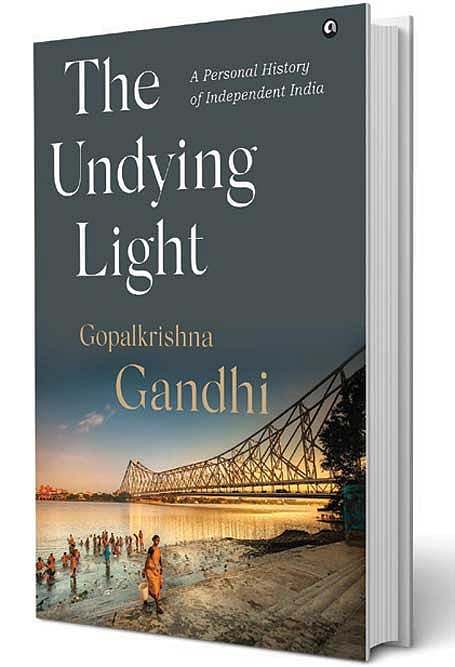Time Capsules

STRICTLY, Gopalkrishna Gandhi’s The Undying Light is neither memoir nor history. One may be tempted to see it as a little bit of both, but this risks obscuring the sheer novelty of a book that artfully blends the meditative depth of memoir with the factual breadth of history to warrant the label of a new genre: histoir, perhaps? If it is the history of India, starting from the 1940s to the present, that provides a framework and lays down a timeline, Gandhi’s personal recollections breathe an immediacy into the major events of the time to create a vivid, resonant narrative.
Of his two illustrious grandfathers, C Rajagopalachari was the single biggest influence on the author’s life. Gandhi teases out the complexities of the man, his personal virtues and political failings, his capacity to be both “fascinating” and “frustrating”. His admiration for a grandfather who was searingly honest and who could be as “sharp as the rasam he loved” doesn’t blind Gandhi to Rajagopalachari’s imperfections. He describes Rajaji’s remarks in a speech at a women’s college about the marriage and ‘duty’ of girls which were hopelessly stuck in a patriarchal past, as appalling. And he is far from glowing about the manner that his grandfather emerged from what seemed like political retirement to head a Congress government, reduced to a minority.
AIming High
20 Feb 2026 - Vol 04 | Issue 59
India joins the Artificial Intelligence revolution with gusto
Mohandas Gandhi, his other grandfather, was assassinated when the author was less than three years old. A direct influence he may not have been, but the spirit of the Mahatma pervades the book and, perhaps fittingly, ends with him. In another passage, a reminder that history is not only shaped by bold commissions but equally by the discreet voids of omissions, the author refers to the attempt on his grandfather’s life (a bomb attack) a day before he was assassinated. It is appalling, he says, and quite correctly, that no one—not Mountbatten, Nehru,Patel or Rajaji—thought of this unsuccessful attempt as a dry run. And that no measures were implemented to enhance Gandhiji’s personal security.
As one may expect of someone with his family background and work experience, the book teems with characters— politicians, bureaucrats and artists. There is clearly a special place for Jayaprakash Narayan and MS Subbulakshmi in his heart. But what is even more striking than his wide array of distinguished friends and acquaintances, is the absence of harsh words or negativity when discussing others, a grace that seems founded on privileging understanding over judgment.
The most meaty parts of the book, at least when read as a political history, lie closer to the end. One relates to the time when Gandhi was High Commissioner to Sri Lanka (2000 to 2002), a period when Norway was involved in the peace talks between the Chandrika Kumaratunga government and the Liberation Tigers of Tamil Eelam (LTTE), when a daring suicide attack on Colombo’s Ratmalana airport was carried out, and when Ranil Wickremesinghe’s centre-right United National Party (UNP) emerged victorious. There is also much to chew on when Gandhi describes his stint as the governor of Bengal (2004 to 2009), a period that marked the emergence of Mamata Banerjee, the weakening of the Left Front, the police excesses and the cadre-led terror in Nandigram, and the surfacing of differences between the author and the state government.
The Undying Light never flags, or to stay with the metaphor, never dims. It is held bright by a certain conversational energy and an authorial voice that is at once candid and endearingly gentle.

